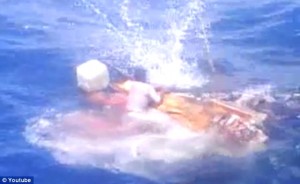Impunity Watch Law Journal at Syracuse University College of Law serves as both a law review and news outlet, with our interactive website serving as our primary publication platform. The goal of our web-based presence is to immediately alert the world to impunity issues as they arise and to provide open access to thoughtful, cutting-edge academic debate about impunity issues. In addition to our online presence, we publish a print copy of our journal every spring in our annual review.
Impunity Watch was created in 2007 by Professor David Crane, the founding Chief Prosecutor of the Special Court for Sierra Leone. Our website is read in over 212 different countries and territories, and some of our reports have been cited by BBC, CNN, and notable international blogs. Impunity Watch is also included in the U.S. Library of Congress database.
For our 2015 publication, we are seeking original scholarly works that provide insight or commentary on contemporary human rights and impunity issues. Preference will be given to pieces of reasonable length (no longer than 25,000 words) that utilize footnotes that are formatted in accordance with The Bluebook: A Uniform System of Citation (19th ed. 2010).
Submissions should be e-mailed to Bridget Kehm, Managing Editor: bkehm@syr.edu
Our 2014 publication can be found at:
https://impunitywatch.com/journal/



